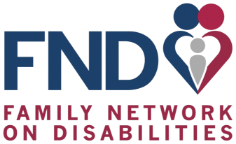INformation Hub
New to Disability?
New to Disability?
Updated February 2019
Has a child’s disability recently touched your life? Are you visiting our website today looking for information about that disability? Would you like to find organizations and people that can help address the disability-related questions and concerns you may have?
We’re very pleased you’re here, because the CPIR has a great deal of information about disabilities to share. We hope this page will:
- give you a quick roadmap to the disability world of help that’s available in the United States; and
- point you to disability resources on this website and beyond that may come in handy, now and as time goes by.
To speed you to information most relevant to you and your situation, we’ve divided the discussion below into two main parts. Click on the section that seems most relevant to your quest for information today, or just read straight through!
- For parents and family members
- For professionals and others addressing a disability question or concern
_________________________________
For Parents and Family Members
The Parent Center network is honored to welcome you to the disability community of those who are raising a child with disabilities. There is a lot of help, understanding, and assistance available, you’ll be glad to know.
First, A Home Truth About Disability
There are many home truths about disability, but perhaps the most visible one is that “disability is a natural part of the human experience...”
We’ve quoted here from Congress. This was the first finding of Congress when it wrote the nation’s special education law, the Individuals with Disabilities Education Act. You’ll find many disability laws in the United States. They are all part of a national policy “…opportunity, full participation, independent living, and economic self-sufficiency for individuals with disabilities.” Not surprisingly, there are many systems in place to address disabilities. These exist at the national, state, and local levels. We’ll describe how to connect with these systems in a moment.
Other Home Truths
Given that disability is a natural part of the human experience, you may also appreciate several related home truths. These come from people who have disabilities or those who are involved with someone who does.
Your child is a person first, always.
Disability does not define your child’s selfhood, any more than the color of his or her eyes does. Individuality grows from the rich soil of personality, experience, health, education, upbringing, and more. Know this for fact, and see it unfold in real time, as your child grows and matures. Having a disability is part of the mix, but so are your child’s strengths, humor, talents, and interests.
Don’t let the labels get you down.
We humans like to have a name for things—and that includes disabilities. We use terms like “learning disabilities” or “AD/HD” or “autism.” These can seem like labels sometimes, limiting and impersonal. It’s not uncommon for parents to resist having a label hung on their son or daughter. Some parents even resist accepting special help for their child because of labeling. Yet—-labels are just terms used for a particular purpose. They’re a convenient way of referring to something. And in the case of children with disabilities, schools are required to report the number of students they’ve helped according to specific categories. They have to use labels.
All this is to say: Try not to get too bugged by the label issue. Use the label when it’s convenient or helpful, like when you’re looking for information on your child’s disability. Forget the label the rest of the time. Your child’s the same person, either way. He or she hasn’t changed one bit, label or no label.
Disability does not mean that your child cannot learn or be educated with peers without disabilities.
Parent Centers talk to many parents who’ve just learned that their child has a disability. Many wonder and worry that the disability means their child cannot learn or must now be educated in a separate classroom, away from friends and peers without disabilities. Not true. As you learn more about the special education system and how it works, you’ll find that IDEA actually prefers students being educated together in the regular classroom.
Also, keep in mind that everyone learns differently. We all have our own personal style of learning, and so does your child. This includes our strengths and weaknesses, preferences and interests, talents and motivation. All of these factors go into how we, as individuals, learn and grow. Your child can learn, will learn. It’s the job of special education to adapt instruction to fit your child’s learning needs.
Learn as much as you can about your child’s disability.
They say knowledge is power, and they’re right. It’s essential to learn more about your child’s disability. How does the disability affect learning, movement, memory, behavior, and so on? What kind of special services help? What type of instruction is effective? These are the kinds of questions to ask. Share relevant information with the professionals working with your child. Also share your insights about your child’s learning styles and preferences that only a parent can have.
You know your child best. Does what you’re learning “fit” your knowledge of your son or daughter?
So you’re reading scads of information about this disability. Keep in mind that not all of it may actually fit your child. He or she is unique, after all. Take the info that fits your child, sounds like your child, or might be helpful to your child, and use it. Leave the rest aside.
 You’re not alone.
You’re not alone.
Disability being part of the human experience, it’s safe to say that many parents are where you are today, or have been where you are—–searching for answers. It really helps sometimes to read what other parents have to say about raising a child with a disability. We recommend reading the short essay You Are Not Alone, written many years ago by parent Patty McGill Smith.
- Read You Are Not Alone
Finding the Information and Help You Need
OK, friend, let’s get down to different business—connecting you with resources of help out there. In this section, we’re not going to explain anything in detail (the page would never end!). We ARE going to suggest that you visit certain pages on this website. That’s where you’ll find things explained.
Here’s a handy list of topics you can investigate. We’ve organized them in roughly the same order in which a parent might move forward, gathering information from the ground up. But feel free to jump around, if you’d like.
Each of the choices below will open in a new window, so this page stays open. That way, you can keep coming back to it and finding another corner to poke around in.
__________________________________________________
What information are you looking for today?
Re: Babies and toddlers, birth to the 3rd birthday:
The baby next door can do so many things that mine can’t, and they’re both 11 months old! Should I be concerned?
Read our Developmental Milestones page.
Where can I have my little one evaluated to see why she isn’t….(sitting up, babbling, talking, walking…) yet?
Evaluations of babies and toddlers are conducted free of charge by the state, when there’s a concern that the little one has a disability or a developmental delay. Find out where you can have your wee one evaluated by reading Services in Your State for Infants and Toddlers.
Tell me about the help available for babies and toddlers with disabilities.
We’re pleased to! Read about early intervention.
Where do I find help in my state?
You’ll want to get in touch with the Parent Training and Information (PTI) center that serves your State. Your State may also have a Community Parent Resource Center (CPRC) that, too, helps parents and family members to connect with vital information and needed assistance in their State and beyond. Visit Find Your Parent Center.
Are there parent groups I can join?
Yes, indeed. Many different kinds, in fact.
Read Parent Groups.
I don’t even know what to ask! It’s all too new.
Understood. The first steps into the disability world can be overwhelming. But go step by step. There’s a lot to learn and know. We humbly suggest that you poke around this website, especially the Repository of Resources, and see what you find. We also strongly suggest that you visit the website of the PTI or CPRC that serves your State.
Re: School-aged children, ages 3-21
I want to read about my daughter’s disability.
Oh, we have just the place for you to start.
Head over to Categories of Disability and connect with fact sheets on disabilities.
My child is not doing well in school. What should I do?
Ask the school to evaluate your child under IDEA. The evaluation is free. Results are then used by you and the school: (a) to determine if your child has a disability that’s affecting his or her schoolwork; (b) to determine whether your child needs special services in school (called special education); and (c) if so, to help you and the school plan what type of help and support your child will receive.
Please read Evaluating Children for Disability.
I don’t know much about special education. Tell me the basics.
Sure, can do.
Read 10 Basic Steps in Special Education.
Are there parent groups I can join?
Yes, indeed. Many different kinds, in fact.
Read Parent Groups.
Who can help in my State?
The Parent Training Information (PTI) center and the Community Parent Resource Center (CPRC) in your State. Not all States have CPRCs, but all have at least one PTI. Connecting with your PTI or CPRC can plug you into who’s-who and what’s-what where you live.
What are my rights as a parent?
That’s a great question. The answer is: You have many rights. Hustle over to the Parental Rights section and dive in.
I don’t even know what to ask! It’s all too new.
Understood. The first steps into the disability world can be overwhelming. But go step by step. There’s a lot to learn and know. We humbly suggest that you poke around this website, especially the Repository of Resources, and see what you find. We also strongly suggest that you visit the website of the PTI or CPRC that serves your State.
We hope this brief introduction to the disability network has gotten you started in your search for information and connection. As your child grows and your experience evolves, your questions will change. The Parent Center network stands ready as an ongoing source of answers and connections.
As a parent new to the disability community, you may also find these last few resources on target:
The Unplanned Journey: When You Learn Your Child Has a Disability
https://www.parentcenterhub.org/journey/
Parent Participation in Early Intervention (Children birth to the 3rd birthday)
https://www.parentcenterhub.org/parent-participation-ei/
Parent Participation in Special Education (Children 3-21)
https://www.parentcenterhub.org/participation/
SOURCE ARTICLE: Center for Parent Information & Resources
Give us a call at (727) 523-1130 or (800) 825-5736 or request a callback by clicking below.
311 South Missouri Ave, Clearwater, FL 33756
(727) 523-1130
(800) 825-5736

